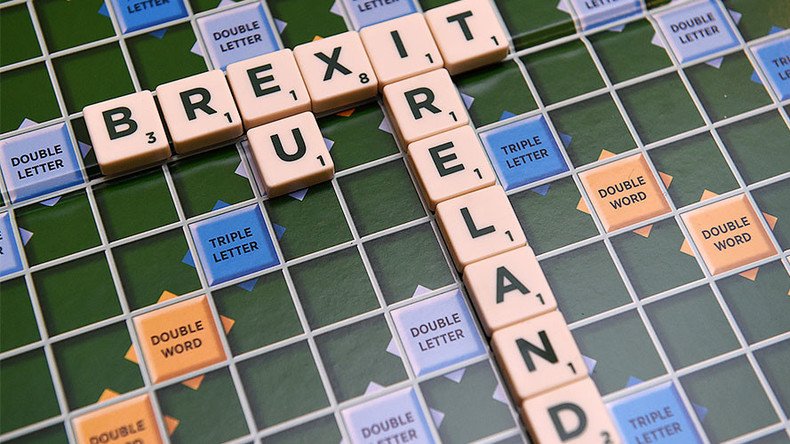Brexit, xenophobia, fascist: What is your ‘word of the year’? (POLL)

It’s the time of year when dictionaries and publishers choose the word of the year. This year’s results reflect an unusual and tumultuous 12 months of Brexit, US elections and the refugee crisis.
Brexit – Collins Dictionary
In the lead up to the UK’s referendum to leave the European Union in June, the word ‘Brexit’ was heard around the world. Meaning, “the withdrawal of the United Kingdom from the European Union,” the term was coined in 2012, but gained popularity in the run up to the the referendum.
Helen Newstead, head of language content at Collins, described Brexit as politics’ “most important contribution to the English language in over 40 years, since the Watergate scandal gave commentators and comedians the suffix ‘-gate’ to make any incident or scandal infinitely more compelling.”
Collins Dictionary names #Brexit word of 2016https://t.co/0BT74GMMu2pic.twitter.com/NWlTI4yy9R
— RT America (@RT_America) November 4, 2016
Xenophobia – Dictionary.com
Dictionary.com’s chosen word of the year was ‘xenophobia.’ Meaning “a dislike of or prejudice against people from other countries,” there was an increase in searches for the term following both Brexit and the election of Donald Trump as president of the US.
The organization says it chooses a term that "embodies a major theme resonating deeply in the cultural consciousness" for its word of the year.
The biggest surges in searches for the term happened directly after Brexit, and following President Barack Obama’s June 29 speech in which he described Trump’s rhetoric as not being populism, but “nativism or xenophobia.”
"While our lookup data can tell us what Dictionary.com users are interested in, it doesn't tell us the reason for the interest," Dictionary.com explained. "Perhaps some of our users were unfamiliar with the word xenophobia, while others might have looked it up to double-check the spelling or pronunciation.”
Paranoid – Cambridge Dictionary
Cambridge Dictionary’s word of the year is based on searches on its website, explaining that “global events are reflected in the words you look up on our site.” This year, the most searched term was, “paranoid.”
It has been searched four times more than the previous year, which, Cambridge says, “suggests perhaps a feeling that the institutions that have kept us safe can no longer be trusted, that the world feels more uncertain than it did a year ago.”
“When we look at other words that have shown similar increases, we can build a fuller picture: anxiety, chaos; a feeling that societies are breaking down; increases in prejudice, bigotry and bullying; and people feeling nostalgic for what are perceived as simpler times.”
It’s not all doom and gloom, as the word ‘adorable’ has also seen an increase in searches.
Fascist – Merriam-Webster
Merriam-Webster chooses its word of the year by searches on its website, but the dictionary seems to be reluctant to have its most searched term be such an unpleasant one. With ‘fascism’ topping its search, the website tweeted Tuesday, “There's still time to look something else up.”
'Fascism' is still our #1 lookup.
— Merriam-Webster (@MerriamWebster) November 29, 2016
# of lookups = how we choose our Word of the Year.
There's still time to look something else up.
@MerriamWebster@samanthavicent I've searched "puppies" 523 times in the past 30 minutes. Anything change?
— Carter Bryant (@CarterthePower) November 29, 2016
Defined as “a political philosophy, movement, or regime (as that of the Fascisti) that exalts nation and often race above the individual and that stands for a centralized autocratic government headed by a dictatorial leader, severe economic and social regimentation, and forcible suppression of opposition,” it’s no wonder the people at Merriam are hoping for a more positive word for 2016.
Post-Truth - Oxford Dictionaries
For Oxford Dictionaries, ‘post-truth’ was the word of the year. Defined as, “Relating to or denoting circumstances in which objective facts are less influential in shaping public opinion than appeals to emotion and personal belief,” the term reflects the rise in conversation about “fake news” and the role it played in both the Brexit vote and the US presidential election.
‘Post-truth’ is Oxford Dictionaries' word of the year after #Brexit and Trump https://t.co/90jxOzy56jpic.twitter.com/oHHL7C5ec8
— RT UK (@RTUKnews) November 16, 2016
Oxford Dictionaries explains, “Post-truth has gone from being a peripheral term to being a mainstay in political commentary, now often being used by major publications without the need for clarification or definition in their headlines.”
The shortlist also included ‘woke’, ‘alt-right’ and ‘hygee’, the Danish practice of contentment.












